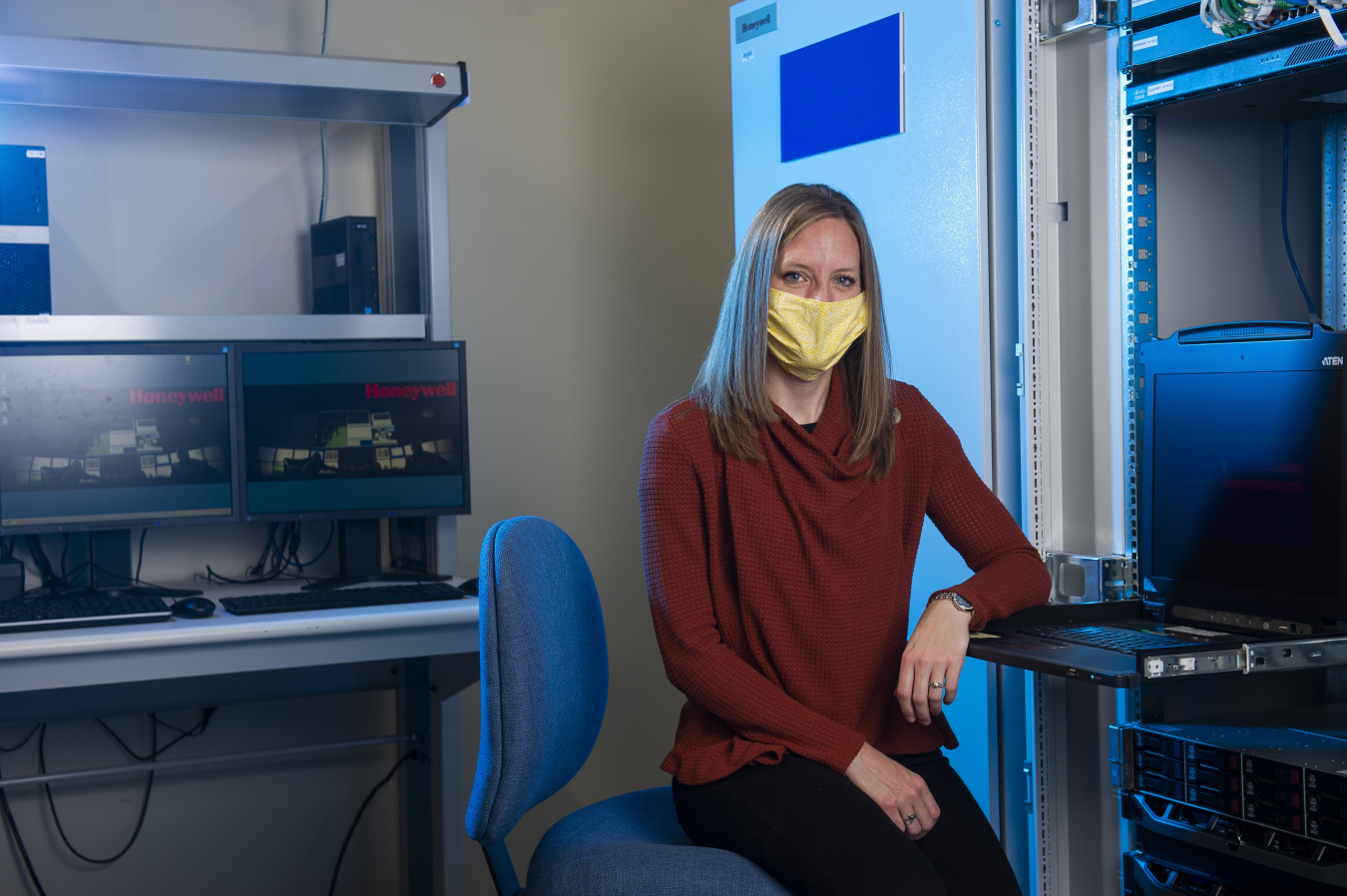Stacey Cook is a Control Systems Cybersecurity Analyst at Idaho National Laboratory's Cybercore Integration Center.
February 10, 2021
Stacey Cookhas been working as a Control Systems Cybersecurity Analyst at Idaho National Laboratory's (INL) Cybercore Integration Center since she started two years ago. She partners with power engineers, control system experts, and cyber researchers to provide threat analysis to protect critical infrastructure from cyber-attacks, using the Consequence-driven Cyber-informed Engineering methodology. While at INL Stacey helped start an intern program within the Cybercore Analyst department where she also mentors. The program, lauded by DOE leadership, took on interns from various universities, in addition to the Coast Guard Academy.
Stacey acquired her bachelor’s degree from Montana State University-Bozeman. While in college she studied biology, but she gained her interest and education in IT and cybersecurity during her ten years of experience as an analyst while serving in the U.S. Air Force. While in the private sector she worked to monitor and uncover illicit activities from pharmaceutical and supplement merchants on internet platforms. During her time in the Air Force Stacey received a Commandant Award during leadership training as well as other honors.
What inspired you to work in STEM?
I got my undergrad degree in biology and worked for a while as a microbiologist after graduating. I decided to go into the U.S. Air Force after that –I lived in Montana at the time and thought that would be a great way to continue my education and see the world. While in the Air Force, I was asked to go learn about cyber and how it could help our team objective. The more I learned about networking and cybersecurity, the more I became interested. The field is always changing,so there’s never a lack of learning and I love that. I never would have imagined while growing up that I would end up in the cyber world.
What excites you about your work at the Energy Department?
What we’re working on here at the Cybercore Integration Centerin particular deals with cutting-edge cybersecurity methodologies and thinking outside of the box about solutions to secure critical infrastructure. It’s exciting to be part of these bigger-picture national projects that are really making a difference. Another thing I love about working at INL is that everyone is very supportive of new ideas and creative thinking.
How can our country engage more women, girls, and other underrepresented groups in cyber research?
I think a lot of it is as simple as exposing students to these things at a young age. If we could go into schools and give young girls a Raspberry Pi, or something like that, I think it would really pique their interest and help them realize that they can enjoy computers andcybersecurity.
Do you have tips you'd recommend for someone looking to enter your field of work?
Knowledge is power. The more you can learn about the cybersecurity field the better. Find a topic you are interested in and do some research and ask questions. People often assume that working with computers requires learning programming, which can be intimidating for some. It is helpful, but there is so much more to explore in the cybersecurity field.
Also, don’t be afraid to be creative. Even if your new ideas aren’t well-received at first, keep advocating for them and keep generating more. Building others up is equally important; this field requires a team effort and no one person is going to be able to solve every challenge that arises on their own.
When you have free time, what are your hobbies?
I enjoy gardening, cooking, and spending time with my family in the great outdoors!
Learn more about our programs & resources for women and girls in STEM at /women

